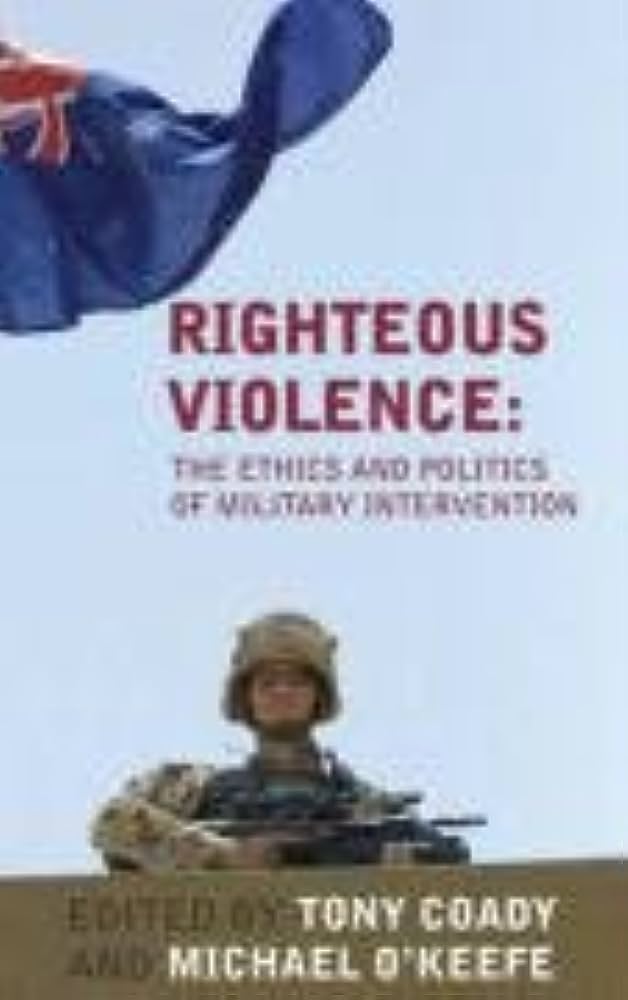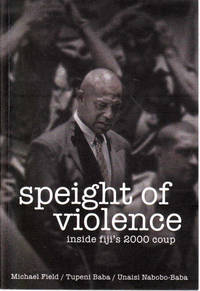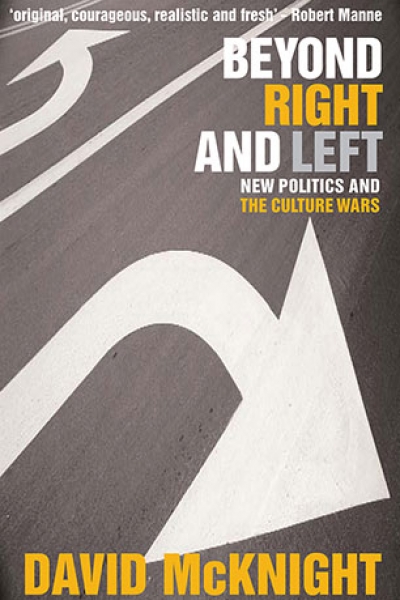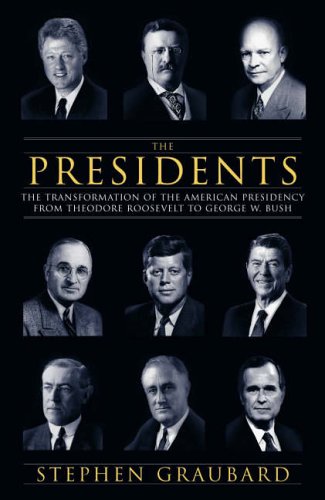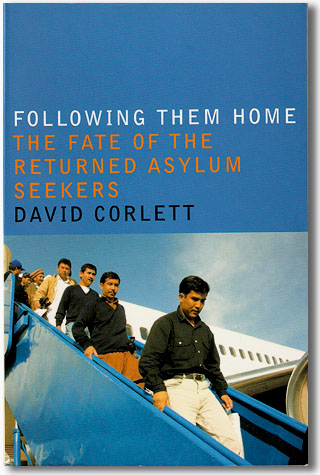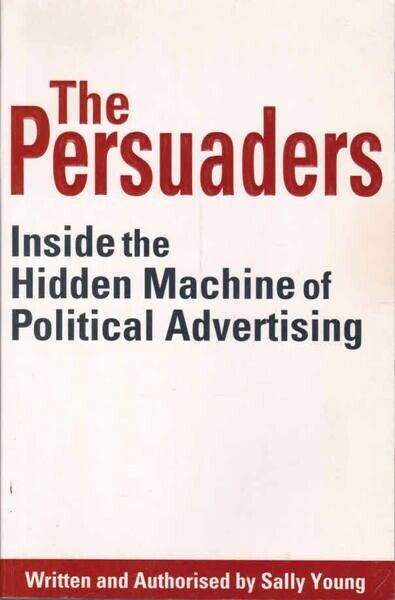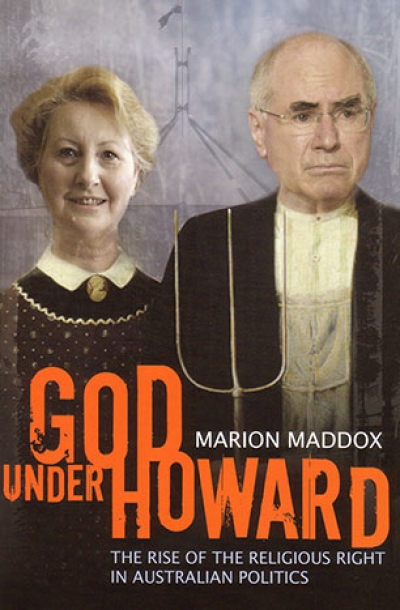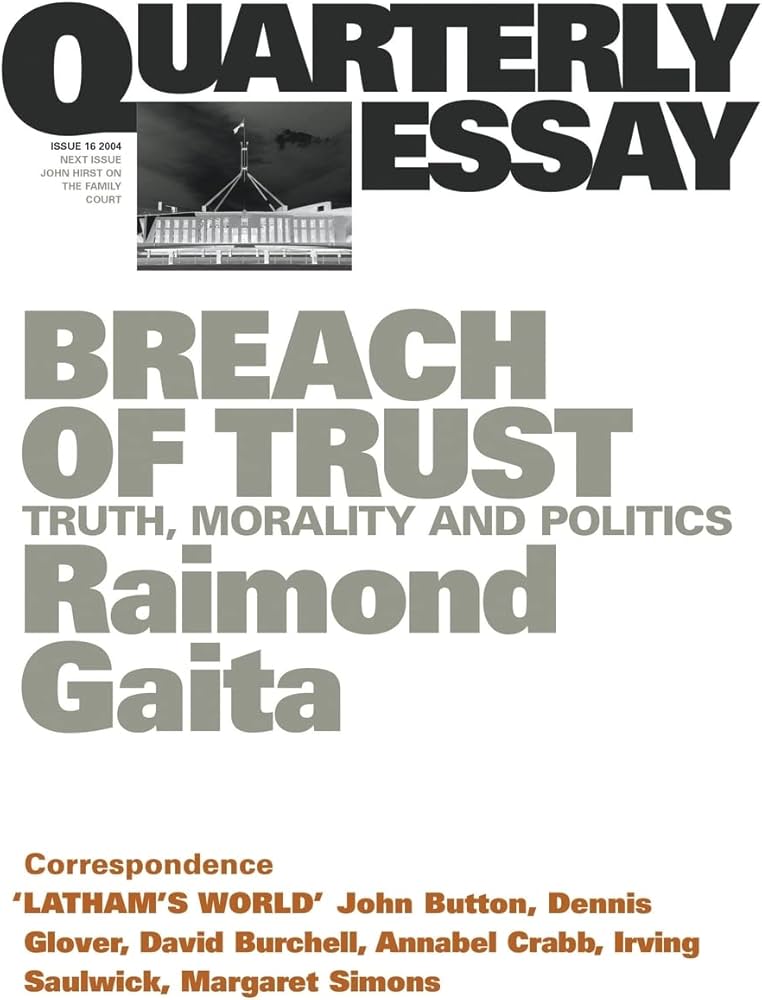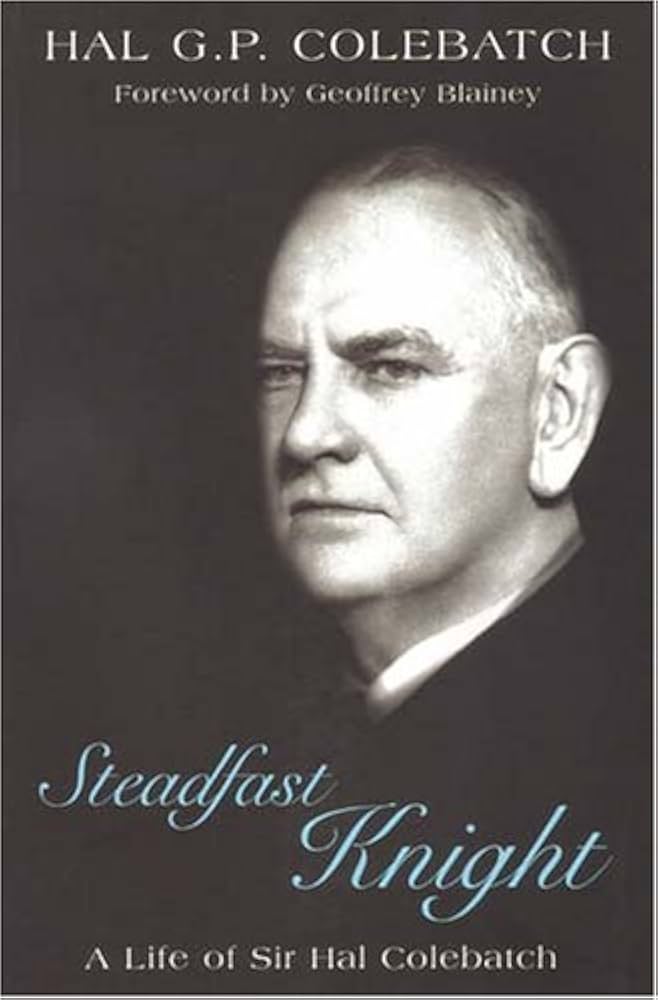Politics
Righteous Violence edited by Tony Coady and Michael O'Keefe & A Matter of Principle edited by Thomas Cushman
The fears and tensions in the aftermath of September 11 created an unusual political climate in the US, in which it became possible for the government to lead an invasion without having to explain precisely why. Nobody seemed to quite know who or what was guiding the administration as it led the charge for war: was it utopian neo-conservatives trying to reshape the world in America’s image? Was it isolationist hawks trying to wipe out an old foreign foe? Was it oil-hungry Texans? Was it paranoid security advisers, regretful of their failures and with a new bent for pre-emption, no matter how distant the threat?
... (read more)Speight of Violence: Inside Fiji’s 2000 coup by Michael Field, Tupeni Baba and Unaisi Nabobo-Baba
The cliché of the South Pacific as a tropical paradise is contradicted by the hellishness of the Melanesian/Polynesian political scheming that characterises most of the region. It is a form of scheming that would make Byzantine politics appear like the polite equivalent of an election for office in the Country Women’s Association. From Port Moresby to Suva, political élites hide behind a fraying façade of democratic governance while slyly engaging in corruption, crime, venality and spite in their dealings with each other and with the citizens they pretend to govern. Many are adept at manipulating the language of anti-colonialism to colonise their own peoples. The ramshackle states they have constructed cannibalise public resources, including resources donated by overseas governments and aid agencies. The South Pacific is becoming a zone of indefensible human suffering. This can be seen in the collapsed ‘state’ of Nauru, the recent violent civil conflicts in the Solomon Islands and Bougainville, and the looming governance crisis in Papua New Guinea. Fiji illustrates the South Pacific’s ‘hell in paradise’ theme vividly with its two coups in 1987 (led by Sitiveni Rabuka) and the even worse misfortunes of the Chaudhry Government in May 2000 at the hands of the notorious George Speight.
... (read more)Martin Krygier’s deft, discursive prose could persuade anyone except an ironclad ideologue that it is exhilarating as well as healthy to examine one’s prejudices and complacencies. Krygier is also a writer possessed of a frank openness that gives credence to the idea that you can judge a book by its cover. I suspect he’d also enjoy the piquancy of maxim busting. The cover of Civil Passions is a particularly beautiful one: a detail of Ambrogio Lorenzetti’s 1338–40 fresco, the Allegory of Good Government. Its Giottoesque precision and its colour – those luminous Sienese pinks and reds – would be reason enough to use it. But there is a deeper fitness to the choice, and it has to do with what Krygier describes as his destined mode of being: one of hybridity.
... (read more)Beyond Right and Left: New politics and the culture wars by David McKnight
In the last twenty years, the belief in a transformative left – socialist, communist, whatever – has collapsed more comprehensively than at any time since its beginnings in 1789. The Western working class is overwhelmingly oriented towards individual life, acquisition and consumption; the working class of the developing world has not developed major radical parties in the face of substantial repression of trade union organisation; faith in central planning, market socialism, interconnected cooperatives and the like drained away in the late 1970s, and no alternative plan for running the economy is on the table.
... (read more)The Presidents: The transformation of the presidency from Theodore Roosevelt to George W. Bush by Stephen Graubard
The parameters of the twentieth century have, in the hands of historians, proved rather malleable. The need to contextualise the ‘End of History’, and a belief that eras are less arbitrarily and more accurately defined by events than by calendars, justified Eric Hobsbawm’s chosen bookends to his acclaimed Age of Extremes: The Short Twentieth Century, 1914–1991 (1994). Harvard historian Stephen Graubard, in his magisterial exploration of the transformation of the American presidency during the twentieth century, extends the reach of the century into the twenty-first – a continuity justified by the redolence of the strategies pursued by George W. Bush to those of Ronald Reagan. For all the present incumbent’s protestations of paradigm shifts necessitating new approaches and responses, Graubard convincingly posits him among the twentieth-century presidents.
... (read more)Following Them Home: The fate of the returned asylum seekers by David Corlett
The federal government maintains that it has no obligation to monitor the fate of non-citizens removed from Australia’s shores. In fact, it argues that it is better not to monitor returnees, since surveillance by a Western government might put them at greater risk. In certain circumstances this may be true: in a theocracy such as Iran, for example, where the very act of leaving renders a citizen suspect. In the main, however, the government’s argument is self-serving. The fate of Australian citizen Vivian Alvarez Solon, left to decline slowly in a Philippines hospice, shines a more revealing light on policy. It shows that Australian authorities have cultivated a determined indifference to the fate of deportees on the basis that ignorance is bliss. No care, no responsibility.
... (read more)The Persuaders: Inside the hidden machine of political advertising by Sally Young
In a discussion on election advertising, an American political operative was asked whether it is preferable to run a ‘negative’ advertisement (criticising an opponent) or a ‘positive’ message (extolling the client candidate). He replied: ‘If it’s negative, it works. If it’s positive, save it for your tombstone.’ In Australia, the major political parties are similarly inclined: according to Sally Young’s research, sixty per cent of television advertisements in federal election campaigns since 1993 have been in the ‘negative’ category. The public’s general dislike of politicians facilitates this approach. For the same reason, the advertising party usually employs an actor to dish out the dirt. Young, a political scientist, has extensively researched political advertising in Australia. The Persuaders: Inside the Hidden Machine of Political Advertising covers the evolution of political advertising in this country and the effectiveness (or otherwise) of various campaigns over the last fifty years.
... (read more)God Under Howard: The rise of the religious right in Australian politics by Marion Maddox
Campaigning during the 1912 US presidential election, the great labour leader and socialist Eugene Debs used to tell his supporters that he could not lead them into the Promised Land because if they were trusting enough to be led in they would be trusting enough to be led out again. In other words, he was counselling his voters to resist the easy certitude that zealotry brings; to reject a politics that trades on blind faith rather than the critical power of reason.
... (read more)Quarterly Essay 16: Breach of trust: truth, morality and politics by Raimond Gaita
On 15 February 2005 the Labor Opposition launched a ‘matter of public importance’ (MPI) debate on ‘truth in government’ in the House of Representatives. An MPI debate is really only an invitation to comment on a ‘matter for discussion’, with no vote taken, as would be the case in a censure motion. The parliamentary discussion is simply timed out. But it is a useful opposition tactic for getting arguments and evidence on the public record.
... (read more)Steadfast Knight: A life of Sir Hal Colebatch by Hal G. P. Colebatch
‘If goods cannot cross frontiers, armies will.’ This prescient remark was made by the Western Australian politician Sir Hal Colebatch, well before the German and Japanese armies started their march in 1936. In a federation not lacking in strong state politicians – Thomas Playford, Henry Bolte, Don Dunstan, Joh Bjelke-Petersen, Charles Court and Jeff Kennett come to mind for the twentieth century – Colebatch (1872–1953) stands out by virtue of his interests and priorities. He is a reminder (and the eastern states often need reminding) that Western Australia has been from the start, and remains to some degree, another country.
... (read more)

